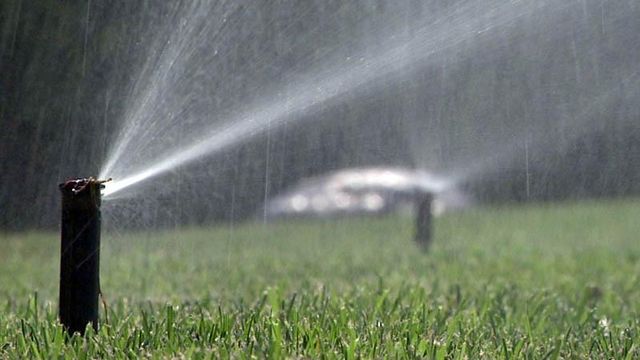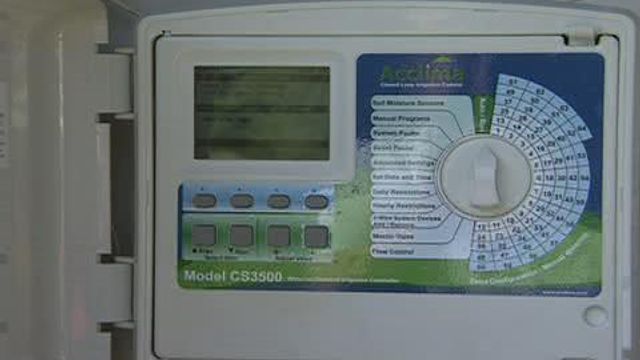Lawn-watering study could boost proposed restrictions
N.C. State professors found watering only twice a week doesn't harm lawns, and using moisture sensors instead of timers to control irrigation systems saves water.
Posted — UpdatedGarry Grabow and Rod Huffman, professors of biological and agricultural engineering, and crop science professors Dan Bowman and Grady Miller planted 5,000 square feet of tall fescue sod at an N.C. State field laboratory on Lake Wheeler Road in late 2006. The grass was divided into 40 experimental plots and was watered with an automatic irrigation system.
"We are looking at different types of irrigation," Grabow said, noting some plots were watered daily, while others were watered once or twice a week.
Some of the plots had special sensors to measure soil moisture and the amount of water used by the grass and lost to evaporation. The sensors controlled when and how much irrigation was done, and the professors said they are far more efficient than the daily timers most people use to turn their irrigation systems on and off.
"There's no reason to water every day," Grabow said. "You always want to use water wisely, and this is just one tool in the overall scheme of things to help people do that."
A Raleigh task force is looking at the possibility of creating year-round water restrictions that would limit people to watering their lawns two days a week, and the N.C. State study could validate the proposal.
"The Water Conservation Council will be interested to hear (the study's findings)," said Ed Buchan, water conservation specialist with the city's Public Utilities Department.
The professors plan to continue their study for another two years. Having determined that watering twice a week will keep lawns healthy, they said, they want to study which types of grass are the most water-efficient.
"Water is a scarce resource, and it's becoming more scarce as the population grows. We have to work harder and harder to make good use of it," Huffman said.
• Credits
Copyright 2024 by Capitol Broadcasting Company. All rights reserved. This material may not be published, broadcast, rewritten or redistributed.






